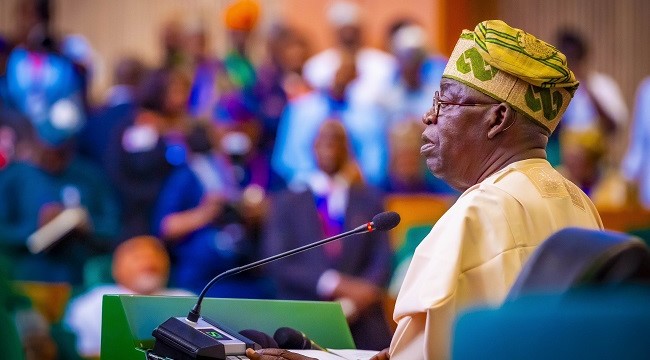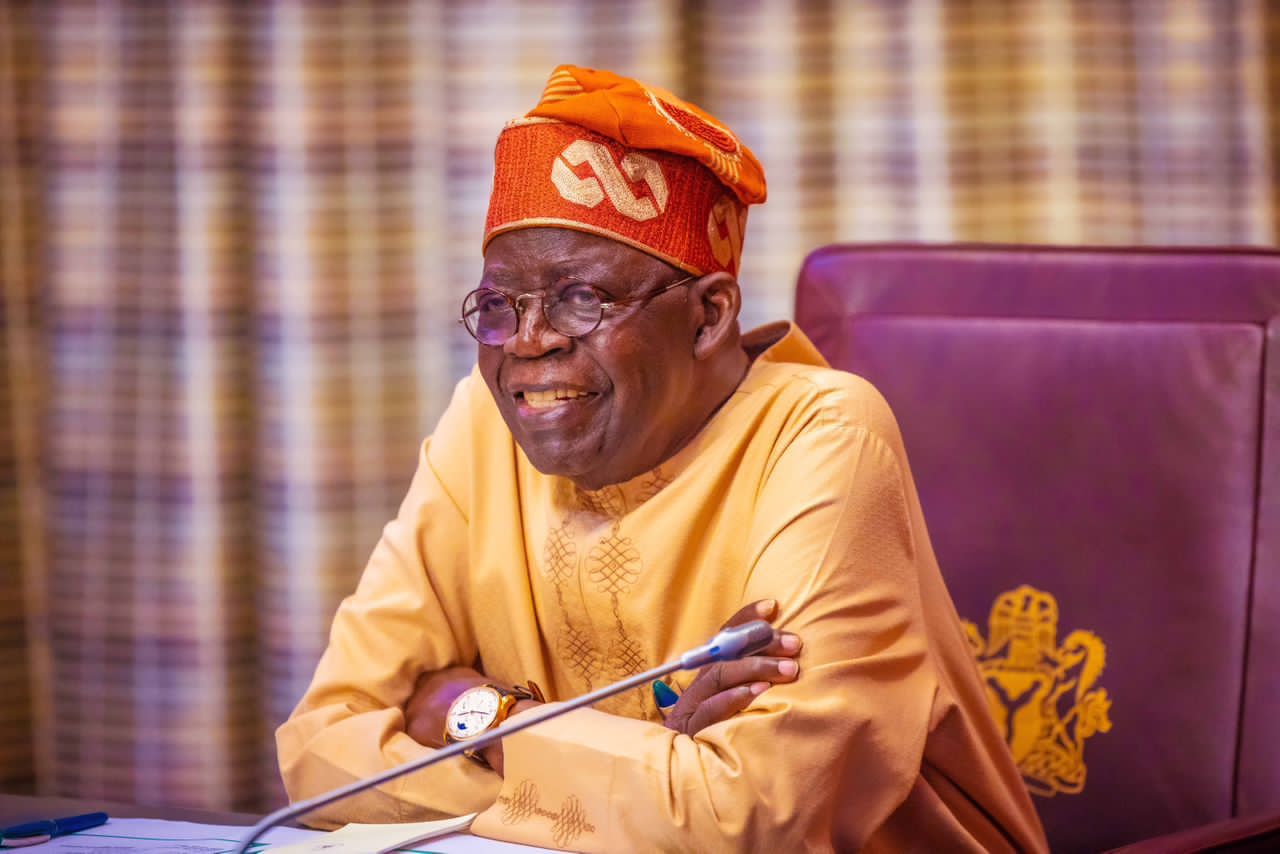
President Bola Tinubu presents the 2025 budget proposal to members of the National Assembly on Wednesday, December 18, 2024 in Abuja. Photo credit: Presidency

In his presentation to a joint session of the National Assembly on Wednesday, President Tinubu said the budget aims to bring down inflation from its current 34.6 per cent to 15 per cent next year.
Politics Today hours after Tinubu’s budget presentation, Abia said it is impossible to reduce inflation to 15 per cent next year when crude oil production is below two million barrels per day.
“The projections are not realistic and the most important thing I think Nigerians should understand is what are the assumptions driving those projections. Now, if you say you want to do 15 per cent headline inflation rate on aggregate for 2025, the core drivers, you have to be able to show us that you are going to realistically drop down those drivers, reduce their efficacy, and their frequency.
“Unfortunately, you cannot do 15 per cent headline inflation rate when you are producing less than less than two million barrels per day. Now, I know they are projecting two million barrels per day, but it is impossible to do when you are currently producing 1.5 million barrels per day,” Abia said.

The President recently announced that the exchange rate would improve from approximately N1,700 per dollar to N1,500. This statement aimed to reassure Nigerians about the government’s efforts to stabilize the currency and reduce the dollar value. The improvement in the exchange rate was presented as a positive step in managing the nation’s economic challenges. However, the projection raised concerns among many Nigerians, especially those hoping for a more significant reduction in the exchange rate.
Chijioke Ekechukwu, the Director General of the Abuja Chamber of Commerce and Industry, expressed his dissatisfaction with the President’s projection. He criticized the statement, arguing that it gave the impression that the exchange rate could not fall below N1,500. Ekechukwu emphasized that such a projection might dampen public expectations, as it suggested a ceiling for the exchange rate rather than an opportunity for further improvement.
Ekechukwu’s concerns were rooted in the belief that Nigerians were still hopeful for a more favorable exchange rate. Many citizens had been anticipating that the rate could drop below N1,500, with some even hoping it could reach as low as N1,000. By announcing that N1,500 would be the target, the government might have unintentionally curtailed those expectations and dampened optimism about the future of the naira.

The Director General further explained that the government’s focus should be on more proactive measures to bring down the exchange rate. He argued that simply projecting a rate of N1,500 without outlining specific plans to achieve it could be seen as a lack of commitment to tackling the issue. Nigerians needed to see concrete actions rather than mere projections to restore confidence in the currency and the economy.
In conclusion, Ekechukwu warned that the announcement of N1,500 as the exchange rate target could have unintended consequences. By framing it as the expected outcome, rather than a potential step in a broader strategy, it may discourage further optimism and reduce the pressure on the government to take more decisive actions. The public, he suggested, should not settle for N1,500 but continue to expect better results in the future.
There is a problem with that projection because you are dampening our hope of a reduction in the exchange rate. All you are telling us is, ‘Yes, the exchange rate is meant to remain here,” Ekechukwu said.
Tinubu listed highlights of the N49.7 trillion budget to include defence and security – N4.91tn, infrastructure – N4.06tn, health – N2.4tn, and education – N3.5tn, among others.
